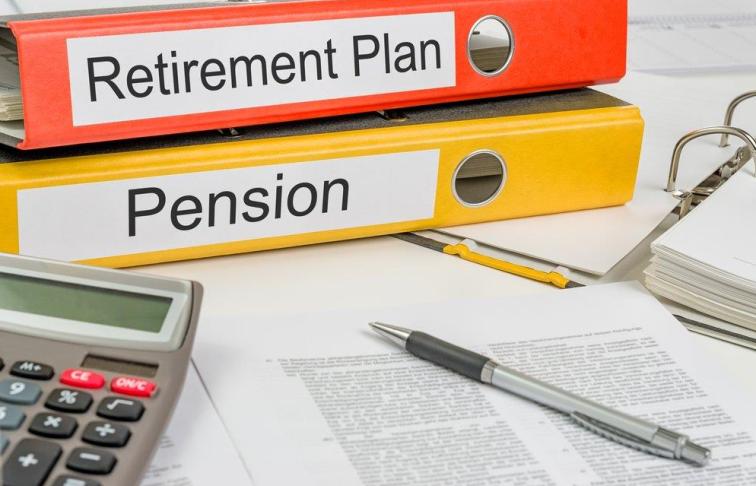Manage your account and see your money through our mobile banking app or on your computer through our website.


Retirement at any age isn’t straightforward. There is no longer an enforced pension age; we can theoretically work as long as we choose to – if we are physically and mentally able. Or, if we can afford it, we may choose to retire early, or to semi-retire by cutting down our workload. There is now increased flexibility over private pensions: you may choose to take 25% of your private pension tax free when you are 55 or above (raising to 57 in 2028), or you may not. If you have had a few employers over your career, you may find that you have several small private pension pots.
Then there is the state pension. Depending on when you were born, you will qualify for a state pension at some point in your 60s and as long as the ‘triple lock’ remains in place, this pension will rise in value every tax year by whichever is highest: inflation, average wage growth or 2.5%.
If you trying to decide if retirement or semi-retirement is for you, these questions could help you understand what you need to consider and where you should go for more help.
How much money will I need to retire?
The first – and most obvious – question you may have about retirement is how much money you will need. Frustratingly, there is no simple answer as it depends on the kind of retirement that you want. This is another difficult question for you to answer – especially as you have never been retired before and will not know how your spending will evolve in the time ahead.
One place you could start is by speaking to current retirees to get an understanding of what retirement costs now. In 2021, this is just what consumer research company Which? did, when they surveyed thousands of retirees to find out how much they were spending.
They found that households with two people were, on average, spending nearly £2,170 a month (approx. £26,000 a year). This covered all the basics but also some luxuries, such as European holidays, hobbies and eating out (which added around £8,000 to the total). For retired couples who wanted extra luxuries, such as long-haul trips and a new car every five years, this figure rose to nearly £3,420 a month (approx. £41,000 a year).
Individuals enjoying a comfortable retirement (basic with some luxuries) spent almost £1,585 a month (approx. £19,000 a year). The more luxurious retirement cost individuals nearly £2,585 a month (approx. £31,000 a year).
Which? noticed that the priorities of the retirees they surveyed evolved as they moved through retirement. Retirees tended to spend relatively less on food and drink, housing payments and recreation as they get older, but more on utility bills, health, and insurance premiums.
How much will I have to spend in retirement?
Your income in retirement may come from different sources: your state pension; private or workplace pension schemes; additional income (from investments or property), ISAs or other savings; and state benefits.
This is what you have coming in. You should also consider what your outgoings are; will you have paid off your home finance? If you’re not working, how much will you save in commuting, lunches or clothes, for example? If you’re part of a couple who both have cars, will you need to keep both of them in retirement?
Once you have an idea of your incomings and outgoings – and an idea of the kind of retirement you would like and benefits you may be entitled to – you will be able to use one of the many online pension calculators to get an idea of your online retirement income. Here is the Money Helper pension calculator, a government-approved online advice service, providing impartial advice on money and pensions choices:
You can also use Age UK's benefits calculator for an estimate of what benefits you could be entitled to. It’s free to use and the results are anonymous:
How do I find out if I qualify for a full state pension and when can I take it?
The official retirement age is gradually being raised so to find out the date that you will qualify for your state pension, enter your details into this calculator. Although this is the earliest date you can take the state pension, you do not have to. You may choose to continue working extra years and defer taking your state pension.
You will need a certain number of qualifying years of National Insurance contributions to get the full amount (although you will get something if you have at least 10 qualifying years).
You can find out how many years of National Insurance contributions you have left to pay on the gov.uk website. You may need to register for a Government Gateway account if you don’t have one already, which will allow you to use online government services.
You must have paid National Insurance contributions for a full year (April to April), or they won’t count towards your total. It is possible to voluntarily ‘top up’ missing National Insurance contributions within the previous six years, or to buy extra years if you want to retire before pension age. To find out more about this option, Money Saving Expert has produced a guide about voluntary national insurance contributions:
How can I find out about my options for my private pensions?
In addition to the State Pension, which is provided by the government, there are two main types of personal pensions:
If you have a defined contribution (personal or workplace) pension you have the freedom to choose how to take your money. Each option comes with its own set of rules, fees, benefits, risks and tax issues. With so many factors to consider and financial terms to understand, you may want to consider taking up a free one-hour ‘Pensionwise’ appointment with a government pension specialist. They will provide you will impartial advice and guidance. Click here to book your appointment.
To find out if you have a defined contribution pension, you can check on the government website here.
Your pension pot is the total amount of pension contributions you and/or your employer have made to save for your retirement. It will include any capital growth earned from the fund’s investments, depending on how your scheme was set up. You should be receiving a pension statement once a year to tell you how much your pension pot is worth, or there may be an option to check on your provider’s website.
If you’ve made pension contributions into multiple pension pots, then you’ll need to contact each fund separately for a statement. It’s important to collect this information so that you can understand your options. Your options may include:
You must have reached a certain minimum pension age set by your pension fund provider to access your pension pot. This is usually 55 years.
Where can I go for more help?
For further guidance and advice around your specific needs, it’s important to speak to an Independent Financial Adviser (IFA). They will be able to discuss your individual circumstances with you and help you decide upon the best course of action for you.
Make sure that whoever you deal with is regulated by the Financial Conduct Authority (FCA), which works to protect consumers from bad practice in the financial services industry. To search and check that an advisor is regulated, you can use the search function within the Financial Services Register.